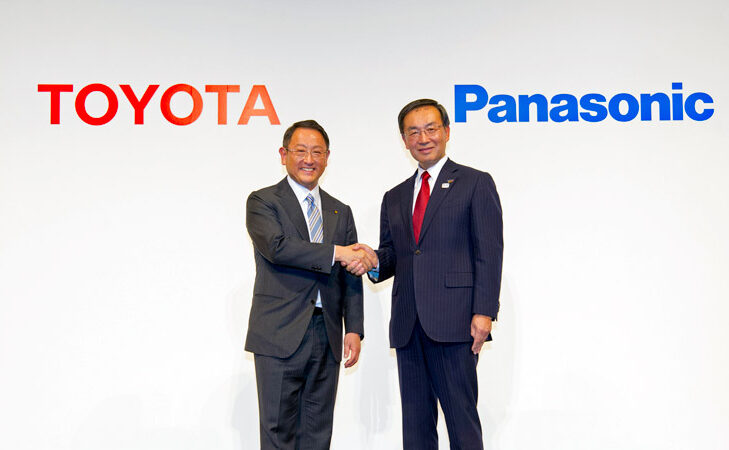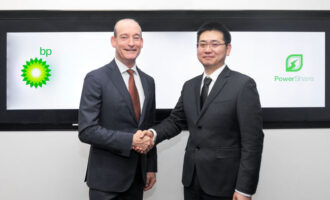
Toyota and Panasonic agree to form JV for automotive prismatic batteries
Toyota Motor Corporation and Panasonic Corporation have signed a contract to establish a new joint venture company by 2020 related to the automotive prismatic battery business that will be 51% owned by Toyota and 49% owned by Panasonic.
The joint venture aims to become the leader in battery-development and battery-manufacturing capabilities.
As vehicle electrification accelerates, batteries are an important element. However, numerous battery-related challenges must be tackled, including not only having advanced technological capabilities to address issues of cost, energy density, charging time, and safety, but also being able to ensure stable supply capacity and having effective recycling structures.
The business environment is one in which independent efforts by battery manufacturers or automobile manufacturers are not enough for solving the issues concerned, the two companies said in a joint statement.
Against the backdrop of such a business environment, Toyota and Panasonic announced on 13 December 2017 an agreement to study the feasibility of a joint automotive prismatic battery business. Since then, the two companies have achieved high-capacity and high-output automotive prismatic batteries that lead the industry in terms of both performance and cost. To contribute to the popularization of Toyota’s and other automakers’ electrified vehicles, Toyota and Panasonic have also repeatedly held earnest discussions on the concrete details of their collaboration.
The scope of the joint venture’s business operations will cover research, development, production engineering, manufacturing, procurement, order receipt, and management related to automotive prismatic lithium-ion batteries, solid-state batteries, and next-generation batteries.
The deal is subject to approval from competition-law authorities in the countries and regions concerned.
Toyota will transfer equipment and personnel to the joint venture in the areas of development and production engineering related to battery cells. Panasonic will transfer equipment, other assets, liabilities, personnel, and other items to the joint venture in the areas of development, production engineering, manufacturing (at plants in Japan and in Dalian, China), procurement, order receipt, and management functions related to the automotive prismatic battery business.
The total number of employees from both companies related to operations subject to transfer to the joint venture is 3,500.
Products produced by the joint venture will be sold to various automakers through, in principle, Panasonic.
Toyota Executive Vice President Shigeki Terashi said: “Together with Panasonic, we want to hone our competitiveness in batteries, which represent one of the core technologies of electrified vehicles. By contributing to the popularization of Toyota’s and other automakers’ electrified vehicles, we want to help find solutions to issues such as global warming, environment-related challenges, and energy-related challenges. We have high expectations for the new company, including—as we aim to deliver ever-better electrified vehicles to even more customers—its role in fulfilling our plans for the popularization of electrified vehicles (including achieving Toyota annual global sales of more than 5.5 million units of electrified vehicles), which we announced at the end of 2017.”
Panasonic Senior Managing Executive Officer Masahisa Shibata said: “Uniting with Toyota’s battery and production-engineering technologies provides us an excellent opportunity for being able to evolve our automotive prismatic batteries, which have an established track record of performance and safety, faster than ever. Through the electrification of vehicles, we want to accelerate our contribution to the realization of a society of mobility that is kind to the environment.”









